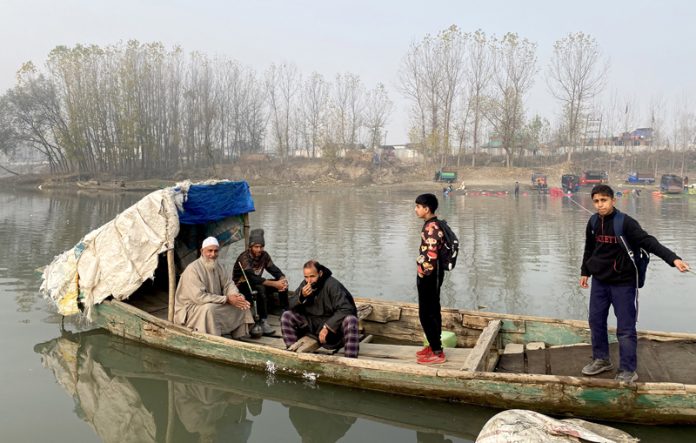
Despite the government’s concerted efforts to enhance connectivity throughout the expanse of UT, denizens residing in the Takanwari region on the fringes of Srinagar persistently yearn for a bridge. The inhabitants, who have fervently beseeched authorities to erect a bridge linking Takanwari with Panzinara on the opposing bank of the Jhelum River, find themselves disheartened as their entreaties have yielded nothing. In their daily perambulations, the residents persist in utilising a boat service that has been operational since the era of Maharaja Hari Singh. However, despite the temporal evolution, they have yet to witness any metamorphosis alleviating their predicaments. In this era of digital advancement, it is profoundly disconcerting that the denizens of a cluster of villages find themselves compelled to rely on privately operated boats for their quotidian pursuits. Even in times of urgency, a dearth of alternative transportation exacerbates the plight of residents, with students, patients, and office-goers emerging as the most grievously affected strata of society. A multitude of lives have already succumbed to the exigencies of the situation, with a comprehensive survey having been conducted; however, there remains a conspicuous absence of any discernible outcome regarding the long-overdue construction of the bridge. The absence of contingency measures underscores the perplexity surrounding the glaring absence of strategic plans for the construction of a bridge.
What is particularly confounding is the failure to address this exigent need, as the populace’s demand is not for extravagance but for an indispensable bridge to facilitate their essential daily activities. The potential beneficiaries of such a bridge may be relatively modest in number, amounting to a few thousand individuals, yet the fundamental right to seamless connectivity is incontrovertibly inherent. Despite the persistent and earnest pleas articulated by the villagers through repeated representations, the local authorities remain conspicuously unresponsive to the genuine exigencies articulated by the populace. Higher echelons of authority must intercede to assess the protracted plight of the community and expeditiously proffer a judicious resolution to this protracted and ostensibly intractable issue that has endured for decades.

